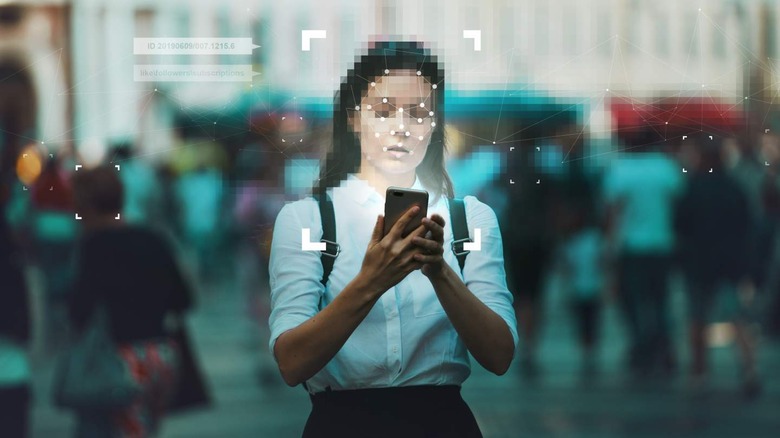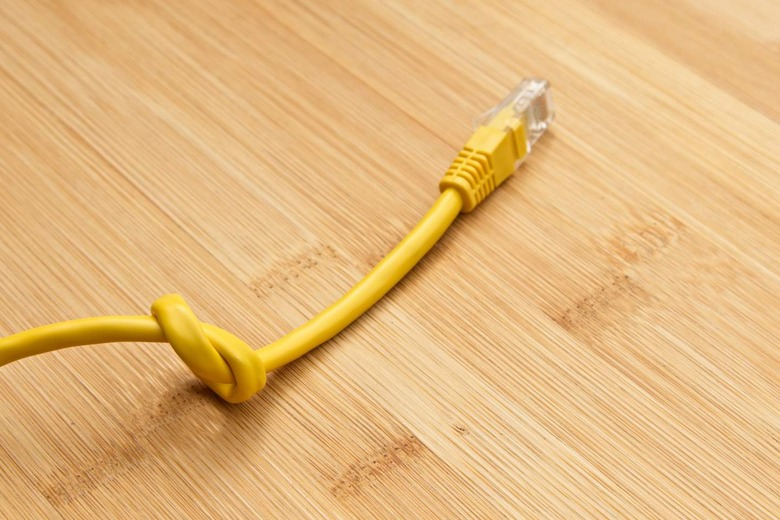Why You Should Use A VPN On Your Phone
Virtual private networks (VPNs) are an important part of modern computer security. While VPNs have been widely used for decades, the rise of remote work has brought them into the spotlight for many users and raised questions about where and on what devices they should be used.
A VPN works by creating an encrypted tunnel between your device and the internet, routed through the VPN's servers. In other words, your device securely connects to the VPN service, and all traffic is routed through it. As a result, any websites you visit will only see traffic coming from the VPN's servers, rather than seeing specific information that could identify you, such as your IP address, location, and more.
While VPN awareness is on the rise, adoption on mobile devices still lags behind desktop usage. In fact, according to TheBestVPN, 17% of desktop users utilize a VPN, as opposed to 15% of smartphone users and just 7% of tablet users. Many mobile users likely believe they don't need a VPN, due to many smartphones being inherently more secure than a computer. In spite of this, there are a number of reasons why you should use a VPN on your phone.
Privacy and Security
The biggest reason for using a VPN on your phone is the same as on the desktop: privacy and security. A VPN masks identifying information that websites can use to build a profile about you.
Your location is one of the biggest things a VPN can hide. Because your internet traffic is being routed through the VPN's servers, a website has no way of tracing your activity back to your IP address. Since websites use IP addresses to help build advertising profiles about individual users, masking this information is a major step toward protecting your privacy.
Similarly, because your internet traffic is routed through the VPN, it keeps your ISP from tracking what websites you visit. Verizon recently made headlines for enrolling its customers in a program where it collects their browsing history in an effort to tailor its services (via Gizmodo). Using a VPN would prevent such tracking since Verizon would only see that you connected to a VPN, but nothing once the connection was established.
Using a VPN on your phone is especially important when connecting to public Wi-Fi, such as at a coffee shop or hotel. Without a VPN, anyone else on the network is free to capture packets of your data, data that may include sensitive information. Connecting via a VPN prevents this by encrypting all traffic between your device and the VPN's servers.
Bypass Regional Restrictions
Another important benefit of using a VPN is the ability to bypass regional restrictions. Many online services restrict access to specific countries or regions, making it difficult for individuals who are traveling to access content they would otherwise be able to.
A VPN can help users bypass this, thanks to how a VPN works. The majority of top VPN services have thousands of servers around the world. As a result, when logging in to the VPN, a user can choose which server they want to route their connection through. In most cases, it's best to choose the server that's closest to your location, as that server will usually provide the best performance and lowest latency.
If you're trying to avoid regional content restrictions, however, you can choose to connect via a server in the target location. For example, if you're traveling overseas and want to access your favorite US-based streaming service, you could choose to connect via a server in the US. The streaming service would see the connection, and identify it as originating in the US, even though you may physically be elsewhere.
The same is true when dealing with online censorship. Some countries censor what their citizens can access on the internet. For example, China's efforts to restrict its citizens' access to the internet have led to what is called "the great firewall of China." Although it may be legally dangerous to do so, using a VPN can offer a way to bypass such censorship.
Avoid ISP Throttling
While many wireless carriers offer unlimited data, there are often caveats surrounding the definition of "unlimited." One such caveat often pertains to the type of content being viewed. For example, many wireless carriers throttle video streaming on lower-tier wireless plans, limiting the video quality to standard definition.
A VPN is one of the easiest ways to avoid ISP throttling. Because the traffic is routed through the VPN, the ISP has no way of knowing what kind of content is being viewed. All the ISP can see is that you are connected to a VPN — not the specific content you're viewing. As a result, it has no way of knowing whether to throttle or not.
As the above examples illustrate, a VPN service offers many advantages for phone users. In fact, because of how and where smartphones are used, phone users arguably need the benefits of a VPN even more than traditional desktop users.



